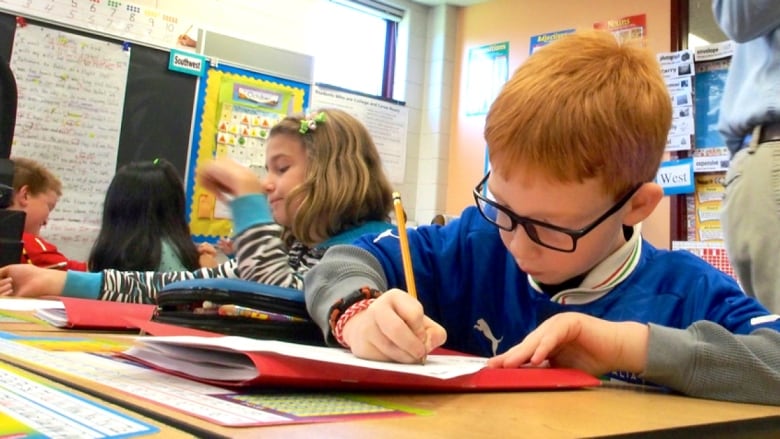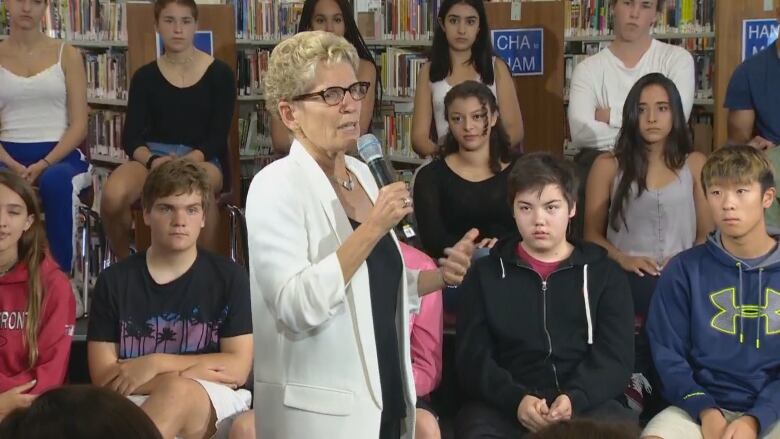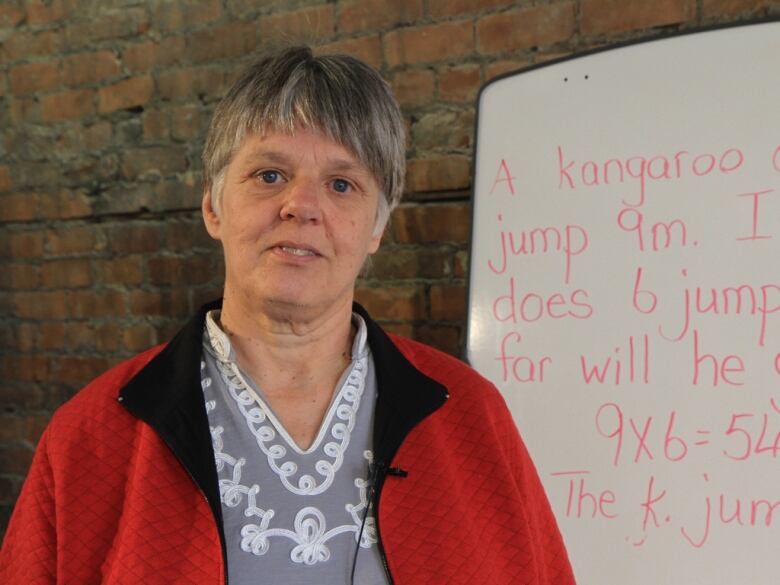Return to basic skills first step to fixing Ontario's math problem, teachers say
Newly-announced 'curriculum refresh' will seek to tackle low performance

As the province prepares to embark on a complete "curriculum refresh"hopingtoaddressyears of slumping math scores, several Ontario educators say the key is going back to basics.
- Just fix the bloody math curriculum: Robyn Urback
- Half of Grade 6 students failed to meet province's math standard for 2nd year
- Ontario to introduce new report cards and re-examine EQAO in 'curriculum refresh'
They argue that students need more class time to work on core ideas like multiplication, division, decimals and fractions time they say was taken away when the government introduced a more conceptual math curriculum more than 15years ago.
Veteran teacher Carla Silver, who has taught math to kids in Grades 4 to 8 for more than 30 years, gives the example of a student she had who never fully memorized her multiplication tables during elementary school.

"Consequently, she never finished a math exam in all of her high school years," said Silver. "The kids need to have those numbers at their fingertips."
That student, she said, is not an isolated case.
"There's a lot of kids who don't know their number facts. And we are not encouraged to review them."
Math 'collapsed'
Teresa Murray has been campaigning for a return to basic math skills for five years, ever since she retired from more than 30 years of teaching Grades 1 to 6 in Hamilton.
In her view, math education "collapsed" with the new curriculum, which introduced what is at times referred toas inquiry-based learning, discovery learning, or constructivism, and which put a new focus on open-ended problem solving and group work.
She saysshe often ignored the new curriculum when she saw her students couldn't keep up.
"I did what was needed,because when I tried to do what I was supposed to do, it didn't work," she said.

Vanessa Vakharia, who owns a math tutoring company called The Math Guru, agrees that something crucial is missing.
"The kids don't have the foundational skills, so they're in the classroom learning these amazing abstract concepts and being taught to problem solve but they don't know what two-times-five is," she said in an interview on CBC'sMetro Morning.
Hitting a balance
While Murray would like to see inquiry-based learning shrink to 20 per cent of the curriculum, others like Vakharia and Silver want only to see more of a balance.
Silver says the right amount of inquiry-based learning can be fun and engaging for her students.
Mary Reid, an assistant professor of math education at the University of Toronto, agrees it has a place, calling for an approach that preserves the best of both worlds.
"If you do either extreme it's going to be a disservice to students and counterproductive," said Reid in an interview with CBC Radio's Here and Now following the release of the latest EQAO results, which saw half of students fail to meet the provincial standard in math.
She pointed out that inquiry-based learning has research to back it up, and that a $60 million strategy to help support math education in Ontario introduced last year still hasn't had enough time to start working.
Meanwhile, said Reid, there are other issues affecting math education in Ontario to consider.
"If you look at the demographics of our elementary teachers, we have stats that show our Grade 3 and Grade 6 teachers, four out of five of them have no post-secondary math courses under their belt. That's like 80 per cent," she said.
Technology also has a role to play, she said, noting that in Ontario, students are introduced to using calculators in Grade 1.
"I believe that it needs to be held off until Grade 4," said Reid. "Mentally computing math is at the heart of numeracy, and we need to have that."












_(720p).jpg)


 OFFICIAL HD MUSIC VIDEO.jpg)
.jpg)



























































































